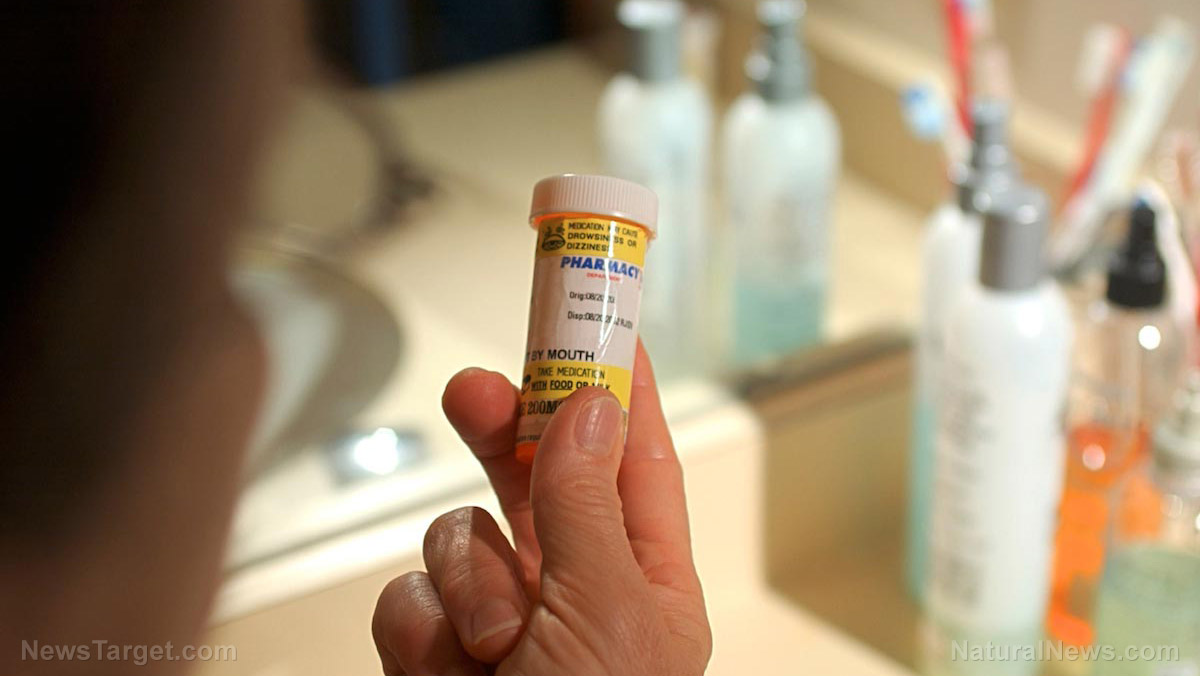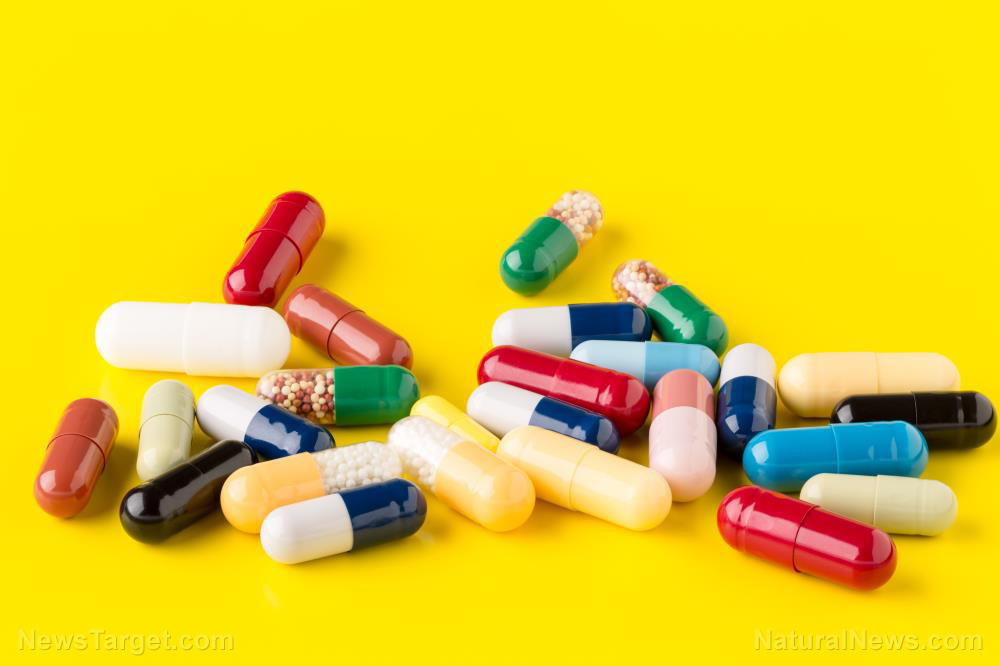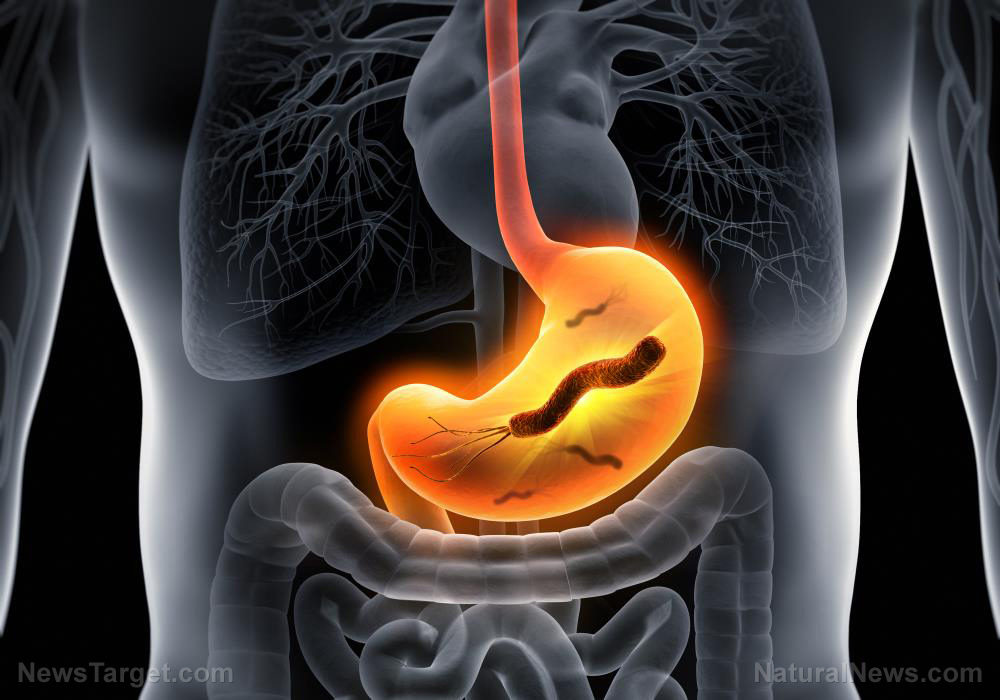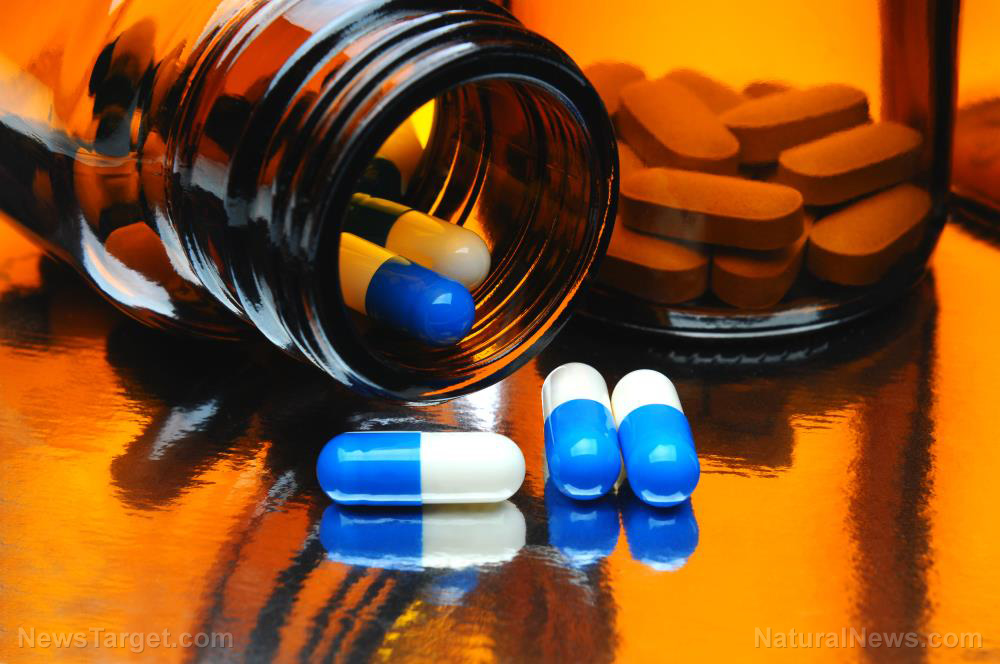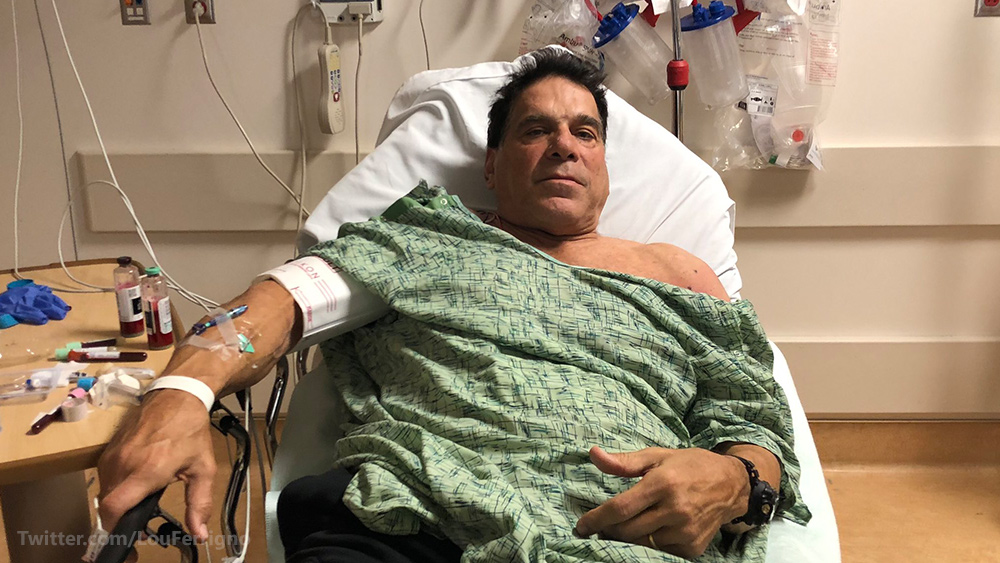Scientists warn that many pharma drugs DESTROY our gut microbiome, causing us to be more vulnerable to disease
04/16/2018 / By Isabelle Z.

You’ve probably heard by now that antibiotics can seriously impact your gut microbiome, but it turns out that this action is not just limited to antibiotics. Now, scientists from Germany’s European Molecular Biology Laboratory have found that many drugs that target human cells rather than bacteria can cause changes in microbiome composition as well.
In fact, the scientists found that more than 25 percent of the 923 non-antibiotic drugs studied decreased the growth of one or more species of human gut bacteria. Some of the drugs that were identified as problematic include anti-diabetics, non-steroidal anti-inflammatory drugs, atypical antipsychotics, and proton pump inhibitors.
Not surprisingly, 78 percent of the antibiotic drugs they looked at also inhibited the numbers of at least one species. It is interesting to note that the non-antibiotics that affected gut microbiomes in their study tended to be those that had more antibiotic-like side effects, like gastrointestinal issues.
The study’s senior author, Professor Peer Bork, said the findings were unexpected. He commented: “The number of unrelated drugs that hit gut microbes as collateral damage was surprising. Especially since we show that the actual number is likely to be even higher.”
That’s because they only looked at a representative sample of what is considered a healthy microbiome, which contained 38 species. An actual human gut typically contains hundreds of species with a far wider diversity of strains. They believe that if they tested more gut species, the fraction of drugs that interfere with gut microbes would rise.
In fact, they theorize that some of these drugs might actually work partly by affecting gut microbes. Different antipsychotics affect similar bacterial species, and it can take weeks for such drugs to start working, which would seem to support that notion.
All drugs – not just antibiotics – contribute to antibiotic resistance
Perhaps even more disturbingly, this points to the possibility that non-antibiotic medications could contribute to the growing and very serious problem of antibiotic resistance. Doctors say the repercussions are frightening when you consider how many non-antibiotic drugs a person takes in their lifetime.
These findings will serve as a good foundation for additional research into the interactions between drugs and gut microbes. Because resistance to certain non-antibiotic medications could trigger a sensitivity to particular antibiotics, it’s possible that scientists could find ways to develop personalized solutions that use optimal drug combinations.
The researchers say they are eager to look into the interactions between drugs and microbes in more complex gut microbe communities to help shed some light on how people respond differently to the same medicines.
Their findings were published recently in the journal Nature.
Medications making us more vulnerable to disease
Antibiotics are already making us vulnerable to disease by destroying our gut microbes, so it’s disheartening to learn that other medications also cause this problem. It was also recently discovered that just a single course of antibiotics is enough to disrupt gut microorganisms for up to a year while also contributing to antibiotic resistance.
Unfortunately, much of the bacteria in the intestines that are destroyed by antibiotics and other medications play a major role in our natural defense system against diseases like cancer.
Gut microbe population changes can leave you vulnerable not only to infections but also gut inflammation, food allergies, malabsorption, mineral and vitamin deficiencies, and obesity.
This is yet another reason that many people prefer to try natural options to address health problems and stick to medications as a last resort. Antibiotic resistance and superbugs are huge threats to human health around the world, and we need to do everything we can to try to stem the problem before it’s too late.
Read DangerousMedicine.com for more coverage of the dangerous side effects of prescription medications.
Sources for this article include:
Tagged Under: antibiotic resistance, Antibiotics, Big Pharma, dangerous drugs, diabetes drugs, disease, disease treatments, gut microbes, gut microbiome, healthcare coverage, immunity, natural remedies, Proton pump inhibitors, superbugs

